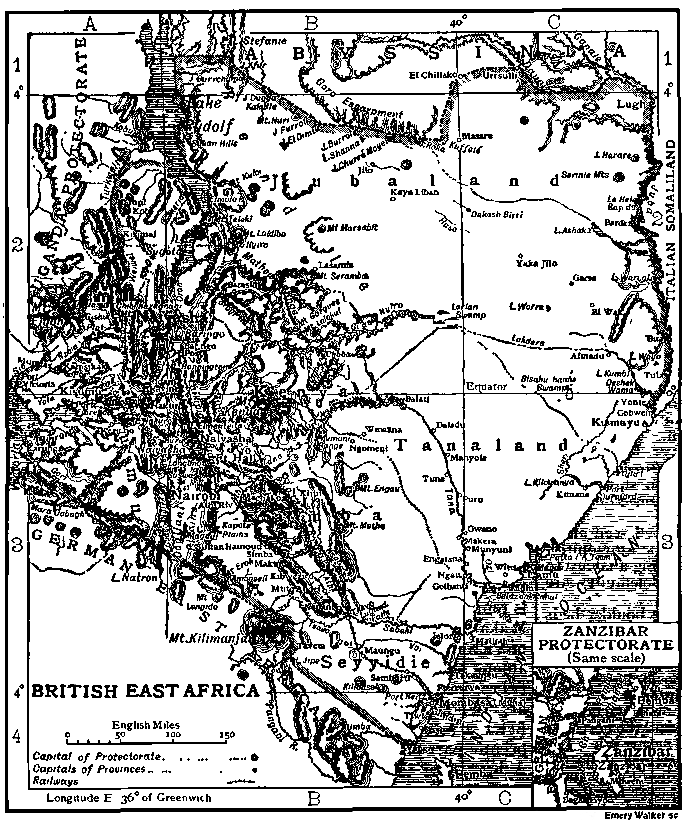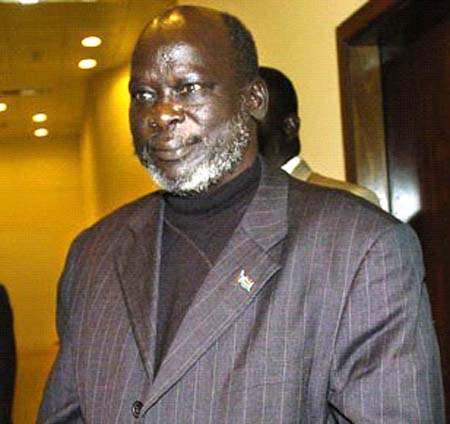|
Samuel Kobia
Samuel Kobia (born March 20, 1947 in Miathene, Meru, Kenya), is a Methodist clergyman and the first African to be elected General Secretary (2004–2009) of the World Council of Churches (WCC), a worldwide fellowship of 349 global, regional and local churches representing a Christian population of over 590 million people. In 2010, Kobia was appointed Ecumenical Special Envoy to Sudan by the All Africa Conference of Churches (AACC). Kobia is married to Ruth, and they have two daughters, Kaburo and Nkatha, and two sons, Mwenda and Mutua. Early life Sam Kobia grew up in a rural home in Meru, eastern province of Kenya, where he completed primary and secondary education under the British colonial system. His ecumenical career began with his studies at St. Paul's University, Limuru, Kenya), where he graduated with a diploma in Theology in 1971. Study and work abroad Kobia then moved to Chicago and enrolled in the McCormick Theological Seminary to study urban ministry. His interest in ... [...More Info...] [...Related Items...] OR: [Wikipedia] [Google] [Baidu] |
Meru, Kenya
Meru is a town in eastern Kenya. It is the headquarters of the Meru County, and the seventh largest urban centre in the country. Meru forms a municipal council with a population of 240,900 residents. Overview The town is located at 0.047035 degrees north and 37.649803 degrees east, on the northeast slopes of Mount Kenya. The Kathita River passes adjacent to the town. The main administrative part of the town is on the north side of the Kathita River. While the south side of the river is where residential areas are situated. Meru Town is situated about 8 km north of the equator, at an altitude of approximately 1500 m, in an area of mixed forest and clearings, small towns, villages and rural farms. The town is predominantly populated by the Ameru people, a Bantu ethnic group. In addition there are other people having different and diverse religions, cultures and all walks of life who live, trade and work in this agricultural and commercial town. History [...More Info...] [...Related Items...] OR: [Wikipedia] [Google] [Baidu] |
History Of Kenya
A part of Eastern Africa, the territory of what is known as Kenya has seen human habitation since the beginning of the Lower Paleolithic. The Bantu expansion from a West African centre of dispersal reached the area by the 1st millennium AD. With the borders of the modern state at the crossroads of the Bantu, Nilo-Saharan and Afro-Asiatic ethno-linguistic areas of Africa, Kenya is a truly multi-ethnic state. The European and Arab presence in Mombasa dates to the Early Modern period, but European exploration of the interior began in the 19th century. The British Empire established the East Africa Protectorate in 1895, from 1920 known as the Kenya Colony. The independent Republic of Kenya was formed in 1963. It was ruled as a de facto one-party state by the Kenya African National Union (KANU), led by Jomo Kenyatta from 1963 to 1978. Kenyatta was succeeded by Daniel arap Moi, who ruled until 2002. Moi attempted to transform the ''de facto'' one-party status of Kenya into a ''de ... [...More Info...] [...Related Items...] OR: [Wikipedia] [Google] [Baidu] |
People From Meru County
A person ( : people) is a being that has certain capacities or attributes such as reason, morality, consciousness or self-consciousness, and being a part of a culturally established form of social relations such as kinship, ownership of property, or legal responsibility. The defining features of personhood and, consequently, what makes a person count as a person, differ widely among cultures and contexts. In addition to the question of personhood, of what makes a being count as a person to begin with, there are further questions about personal identity and self: both about what makes any particular person that particular person instead of another, and about what makes a person at one time the same person as they were or will be at another time despite any intervening changes. The plural form "people" is often used to refer to an entire nation or ethnic group (as in "a people"), and this was the original meaning of the word; it subsequently acquired its use as a plural form of p ... [...More Info...] [...Related Items...] OR: [Wikipedia] [Google] [Baidu] |
21st-century Methodist Ministers
The 1st century was the century spanning AD 1 ( I) through AD 100 ( C) according to the Julian calendar. It is often written as the or to distinguish it from the 1st century BC (or BCE) which preceded it. The 1st century is considered part of the Classical era, epoch, or historical period. The 1st century also saw the appearance of Christianity. During this period, Europe, North Africa and the Near East fell under increasing domination by the Roman Empire, which continued expanding, most notably conquering Britain under the emperor Claudius (AD 43). The reforms introduced by Augustus during his long reign stabilized the empire after the turmoil of the previous century's civil wars. Later in the century the Julio-Claudian dynasty, which had been founded by Augustus, came to an end with the suicide of Nero in AD 68. There followed the famous Year of Four Emperors, a brief period of civil war and instability, which was finally brought to an end by Vespasian, ninth Roman emperor ... [...More Info...] [...Related Items...] OR: [Wikipedia] [Google] [Baidu] |
Kenyan Methodist Ministers
) , national_anthem = " Ee Mungu Nguvu Yetu"() , image_map = , map_caption = , image_map2 = , capital = Nairobi , coordinates = , largest_city = Nairobi , official_languages = Constitution (2009) Art. 7 ational, official and other languages"(1) The national language of the Republic is Swahili. (2) The official languages of the Republic are Swahili and English. (3) The State shall–-–- (a) promote and protect the diversity of language of the people of Kenya; and (b) promote the development and use of indigenous languages, Kenyan Sign language, Braille and other communication formats and technologies accessible to persons with disabilities." , languages_type = National language , languages = Swahili , ethnic_groups = , ethnic_groups_year = 2019 census , religion = , religion_year = 2019 census , demonym = ... [...More Info...] [...Related Items...] OR: [Wikipedia] [Google] [Baidu] |
Living People
Related categories * :Year of birth missing (living people) / :Year of birth unknown * :Date of birth missing (living people) / :Date of birth unknown * :Place of birth missing (living people) / :Place of birth unknown * :Year of death missing / :Year of death unknown * :Date of death missing / :Date of death unknown * :Place of death missing / :Place of death unknown * :Missing middle or first names See also * :Dead people * :Template:L, which generates this category or death years, and birth year and sort keys. : {{DEFAULTSORT:Living people 21st-century people People by status ... [...More Info...] [...Related Items...] OR: [Wikipedia] [Google] [Baidu] |
John Garang
John Garang de Mabior (June 23, 1945 – July 30, 2005) was a Sudanese politician and revolutionary leader. From 1983 to 2005, he led the Sudan People's Liberation Army (SPLA) after the Second Sudanese Civil War, the comprehensive peace agreement of 2005 was signand he briefly served as Vice President of Sudan, First Vice President of Sudan for 3 weeks until his death in a helicopter crash on July 30, 2005. A developmental economist by profession, Garang was a major influence on the movement that led to the foundation of South Sudan. Early life and education Garang, who is regarded as the founding father and symbol of unity in today's South Sudan is a member of the Dinka ethnic group. He was born into a poor family in Wangulei village Twic East County in the upper Nile region of Sudan. An orphan by the age of ten, he had his fees for school paid by a relative, going to schools in Wau and then Rumbek. In 1962 he joined the first Sudanese civil war, but because he was so young, t ... [...More Info...] [...Related Items...] OR: [Wikipedia] [Google] [Baidu] |
John Paul II
Pope John Paul II ( la, Ioannes Paulus II; it, Giovanni Paolo II; pl, Jan Paweł II; born Karol Józef Wojtyła ; 18 May 19202 April 2005) was the head of the Catholic Church and sovereign of the Vatican City State from 1978 until his death in April 2005, and was later canonised as Pope Saint John Paul II. He was elected pope by the second papal conclave of 1978, which was called after John Paul I, who had been elected in August to succeed Pope Paul VI, died after 33 days. Cardinal Wojtyła was elected on the third day of the conclave and adopted the name of his predecessor in tribute to him. Born in Poland, John Paul II was the first non-Italian pope since Adrian VI in the 16th century and the second-longest-serving pope after Pius IX in modern history. John Paul II attempted to improve the Catholic Church's relations with Judaism, Islam, and the Eastern Orthodox Church. He maintained the church's previous positions on such matters as abortion, artificial ... [...More Info...] [...Related Items...] OR: [Wikipedia] [Google] [Baidu] |
Amsterdam
Amsterdam ( , , , lit. ''The Dam on the River Amstel'') is the Capital of the Netherlands, capital and Municipalities of the Netherlands, most populous city of the Netherlands, with The Hague being the seat of government. It has a population of 907,976 within the city proper, 1,558,755 in the City Region of Amsterdam, urban area and 2,480,394 in the Amsterdam metropolitan area, metropolitan area. Located in the Provinces of the Netherlands, Dutch province of North Holland, Amsterdam is colloquially referred to as the "Venice of the North", for its large number of canals, now designated a World Heritage Site, UNESCO World Heritage Site. Amsterdam was founded at the mouth of the Amstel River that was dammed to control flooding; the city's name derives from the Amstel dam. Originally a small fishing village in the late 12th century, Amsterdam became a major world port during the Dutch Golden Age of the 17th century, when the Netherlands was an economic powerhouse. Amsterdam is th ... [...More Info...] [...Related Items...] OR: [Wikipedia] [Google] [Baidu] |


_1938.jpg)



.jpg)